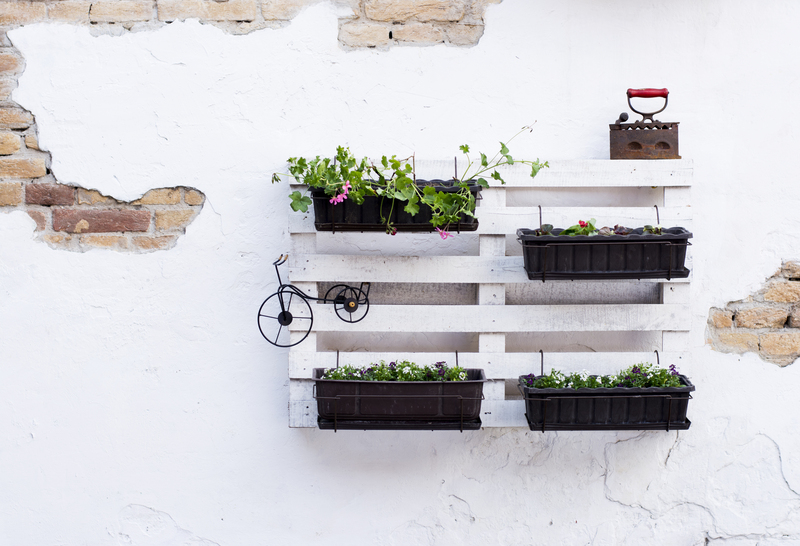Eco-Friendly Hacks for Limiting Green Waste Effectively
As environmental concerns become more pressing, finding ways to limit green waste is increasingly important. Not only does reducing green waste contribute to a cleaner environment, but it also promotes sustainable living practices. In this article, we will explore a variety of eco-friendly hacks to help you effectively manage and diminish your green waste output.
Understanding Green Waste
Before diving into the strategies, it's essential to understand what constitutes green waste. Green waste includes organic materials such as grass clippings, leaves, branches, and food scraps. These materials often end up in landfills, where they decompose anaerobically to produce methane, a potent greenhouse gas. By making simple adjustments to how we manage this waste, we can significantly reduce environmental impact.

Practical Tips to Reduce Green Waste
1. Start Composting
One of the most effective ways to reduce green waste is through composting. Composting involves the natural breakdown of organic materials into nutrient-rich soil. Follow these steps to get started:
- Choose a convenient spot in your garden for your compost pile or bin.
- Add a mix of green waste, such as fruit and vegetable scraps, and brown waste, like dried leaves and twigs.
- Maintain proper moisture levels by occasionally watering and turning the pile to aerate it.
- Be patient, as composting can take several months to a year to yield results.
Composting not only reduces waste but also enhances soil quality, promoting a healthier garden.
2. Engage in Vermicomposting
If you lack space or simply want an indoor solution, consider vermicomposting. This process employs worms to break down organic waste, resulting in high-quality fertilizer. Here's how you can start:
- Obtain a vermicompost bin and red wiggler worms, which are highly effective at processing waste.
- Add bedding material such as shredded newspaper and maintain moisture for the worms.
- Introduce vegetable scraps and peelings, avoiding meat, dairy, and oily foods, which may attract pests.
- Harvest the worm castings in a few months for use as a natural fertilizer.
3. Implement Grasscycling
A common source of green waste is lawn clippings. Instead of disposing of them, practice grasscycling. Here are the benefits:
- Reduce the need for chemical fertilizers, as clippings decompose quickly, returning nutrients back to the soil.
- Save time and effort, as there's no need to bag clippings.
- Encourage healthier lawns due to improved soil nutrition.
To start, leave the grass clippings on the lawn after mowing, ensuring they are short enough to decompose rapidly.
4. Utilize Mulching
Mulching is a versatile technique not only for reducing green waste but also for improving plant health. By using organic materials like leaves and bark as mulch, you can achieve the following:
- Suppress weeds, minimizing the need for chemical treatments.
- Retain soil moisture, reducing the frequency of watering.
- Protect plant roots from extreme temperatures.
Spread mulch around the base of plants, ensuring a thin, even layer.
5. Repurpose Garden Waste
Cleverly repurposing garden waste offers immense benefits for waste reduction and garden enhancement. Consider these ideas:
- Use chopped branches and twigs as pathways or fencing material.
- Create leaf mold from gathered leaves, which can be used as a soil conditioner.
- Save seeds and cuttings for future planting, encouraging biodiversity in your garden.

Adopt Sustainable Practices
1. Reduce Food Waste
A significant proportion of green waste originates from food scraps. By minimizing food waste, you can considerably reduce the volume of waste generated. Here are some steps to achieve this:
- Plan meals effectively, purchasing only the needed ingredients.
- Store food properly to prolong its shelf life.
- Use leftover vegetables to prepare broths or soups.
- Donate surplus food to community organizations or food banks.
2. Implement Smart Landscaping Techniques
Smart landscaping can vastly reduce green waste by designing a yard that aligns with your local ecosystem. Consider:
- Selecting native plants that require fewer resources and resist local pests more effectively.
- Opting for xeriscaping, a landscaping method that reduces the need for frequent watering and mowing.
- Introducing perennial plants, which minimize yearly waste associated with seasonal plants.
3. Prioritize Eco-Friendly Products
Lastly, choosing sustainable products reduces the environmental footprint of your gardening practices. Look for:
- Tools made from recycled or biodegradable materials.
- Organic fertilizers and pesticides to reduce chemical runoff.
- Rain barrels to accumulate rainwater for use in your garden.
Concluding Thoughts
By integrating these eco-friendly hacks into your daily routine, you can effectively cut down your green waste and make a positive impact on the environment. As we strive towards sustainability, every small change contributes to a healthier planet. Start today, and discover the rewards that come with conscientious waste management practices.
Remember, reducing green waste is not just an obligation but an opportunity to foster a more sustainable and greener future.